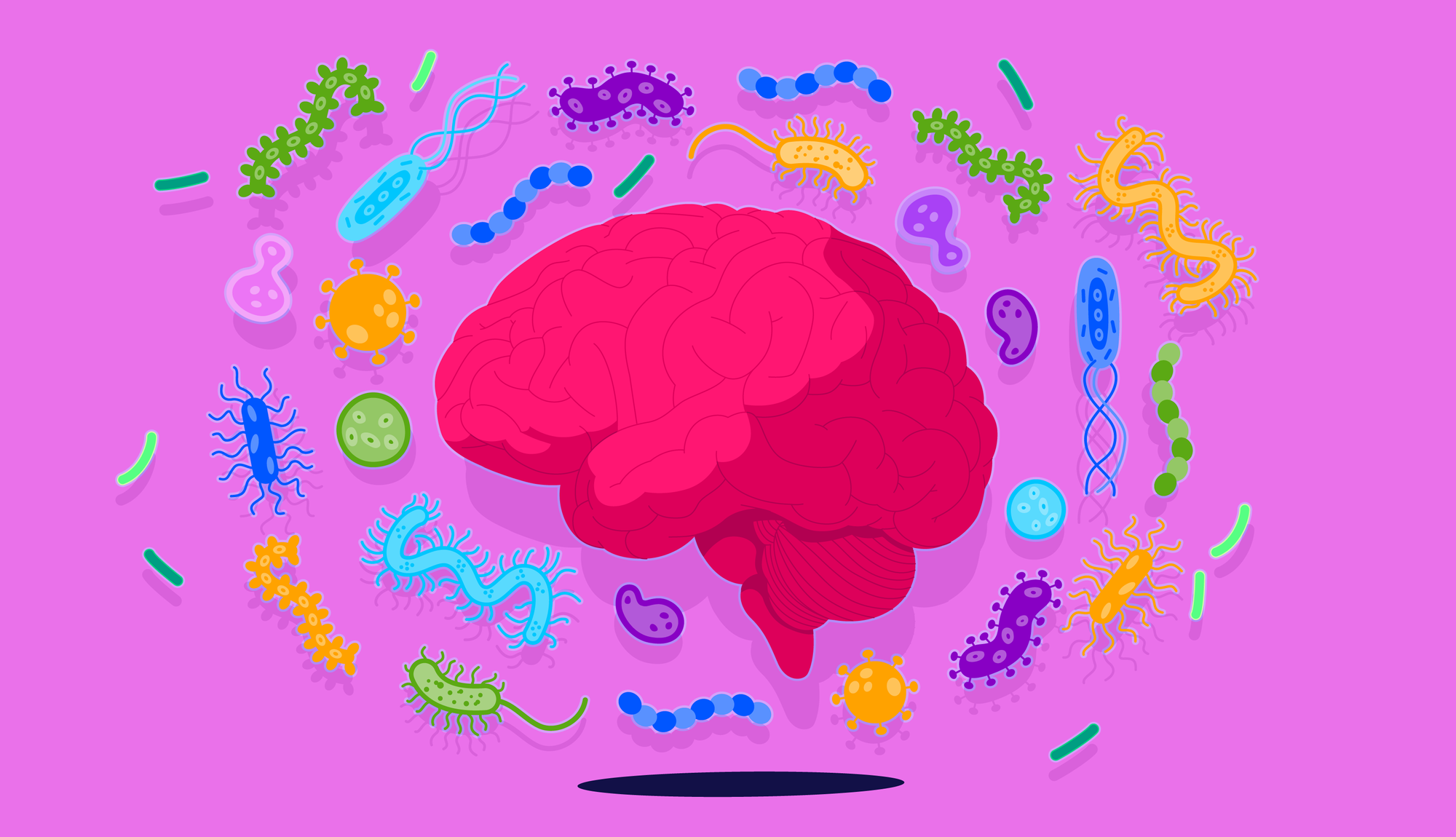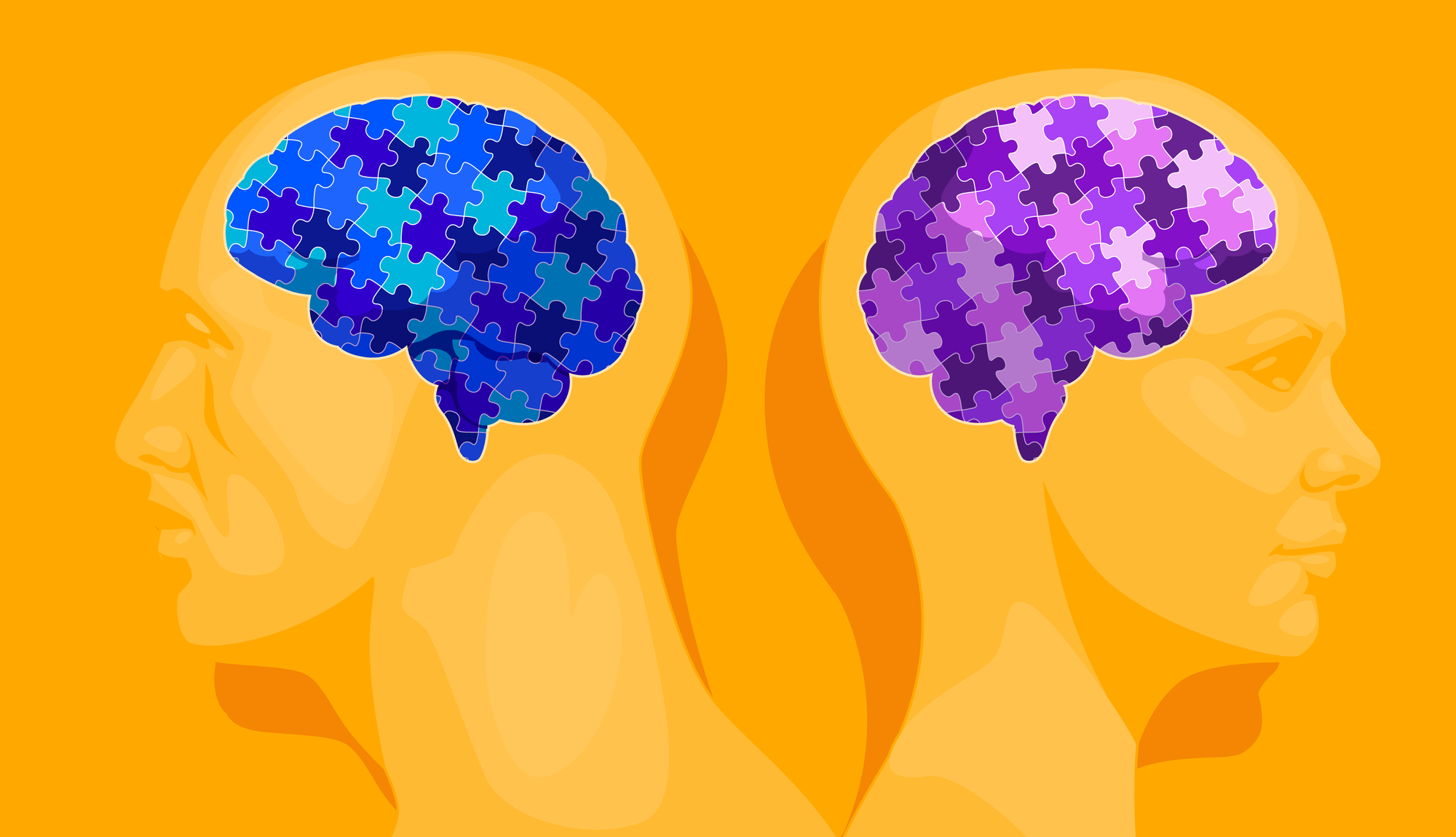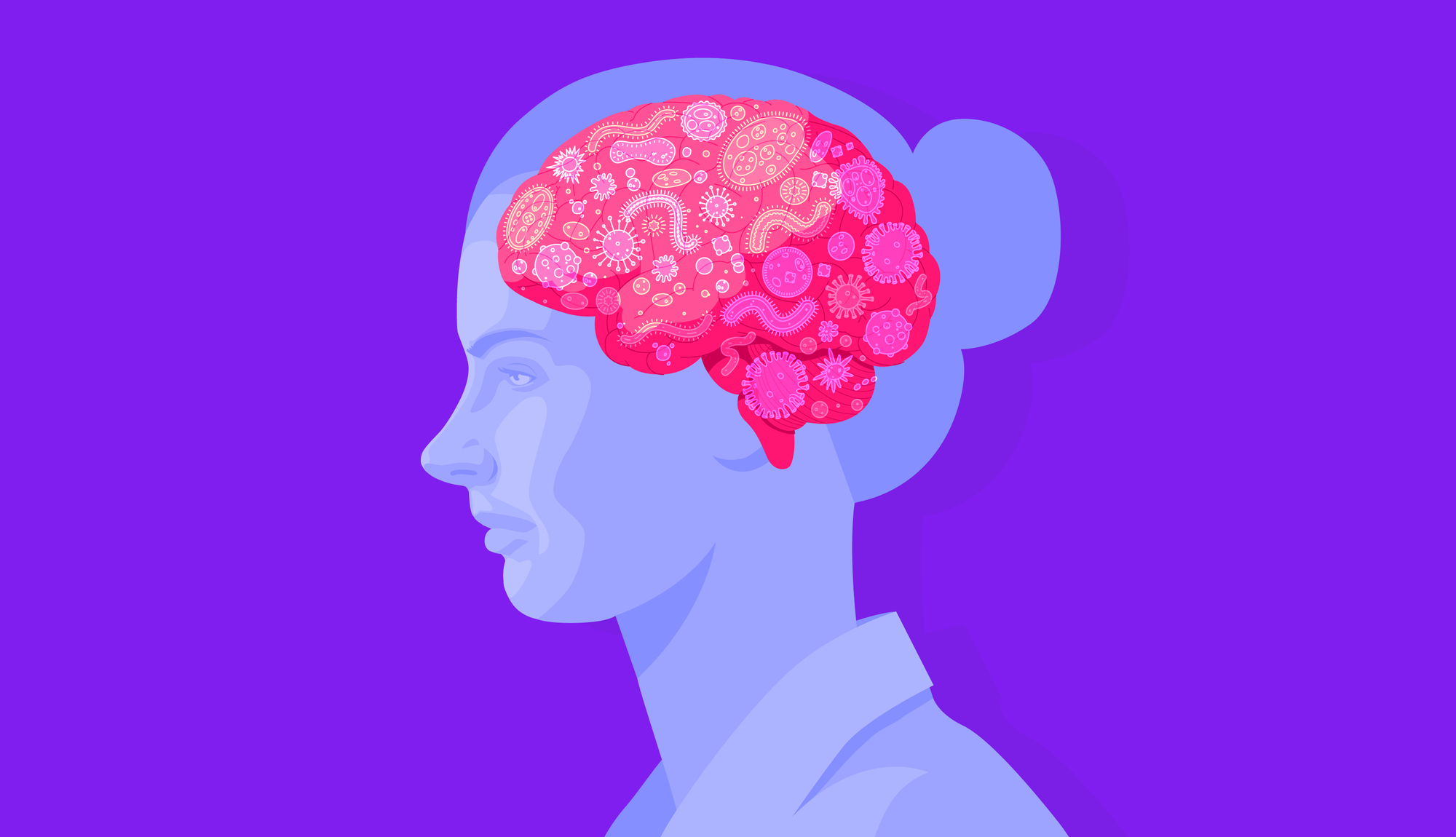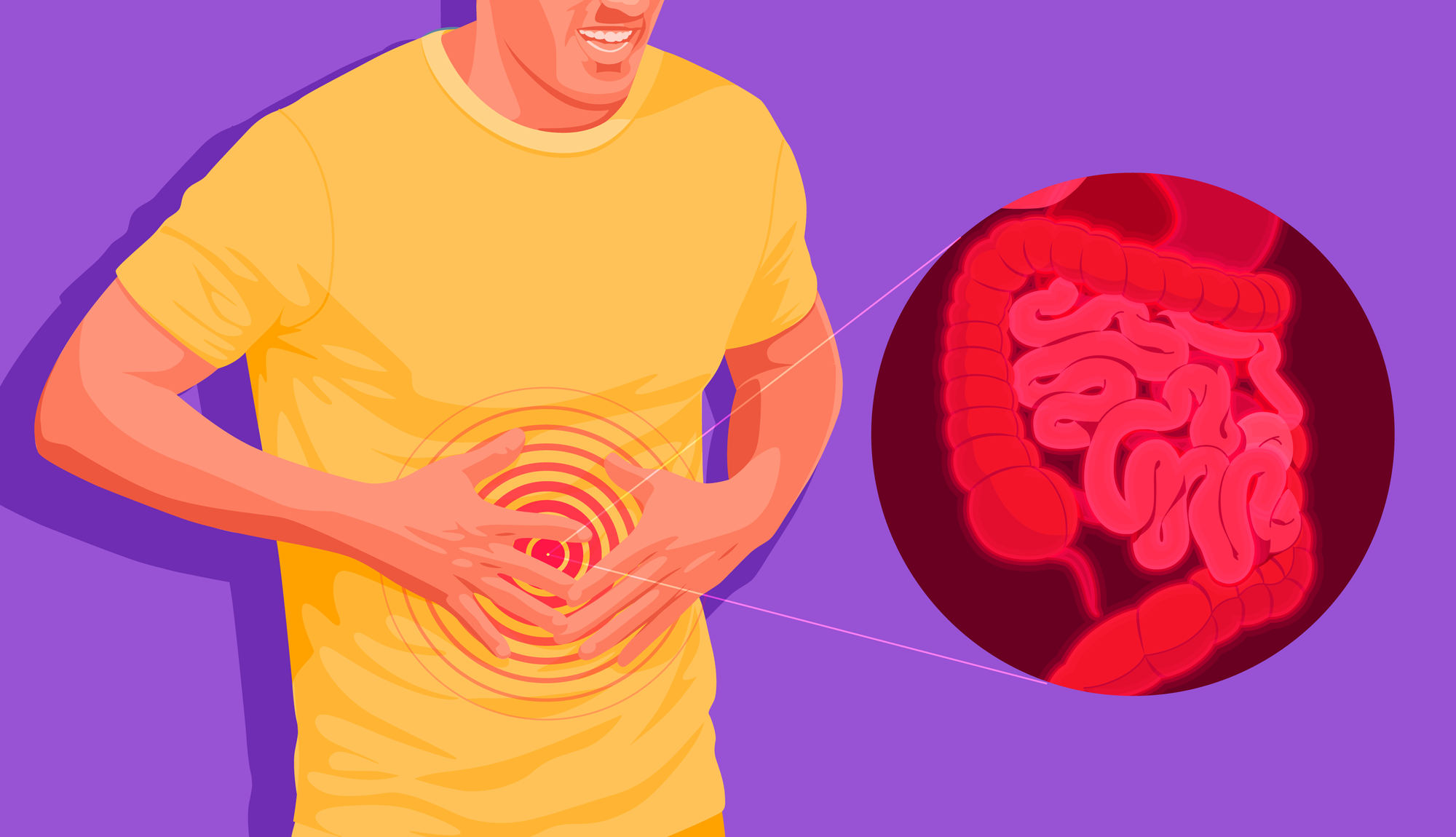Do gut microbes influence your personality, and could a probiotic shot make an extrovert of an introvert? Keep reading to find out.
Each of us is unique, with individual ways of thinking and feeling about the world that influence our behaviour. We refer to this as our personality.
Psychologists have designed numerous tests which "categorise" people's broad behavioural traits, most notably the Myers-Briggs test.
But what determines whether we are social butterflies or wallflowers, stoic or neurotic? Personality results from nature and nurture, shaped by the culture we are raised in, the people we interact with and the genes we inherit.
This tapestry of influences forms our beliefs and behaviours, and how much each factor plays a part will vary between individuals.
As we've written about before, your microbiome acts as an "organ" in your body, influencing your immune, metabolic and gastrointestinal health, but could gut bacteria also have a part to play in your personality development?
Personality Transplant
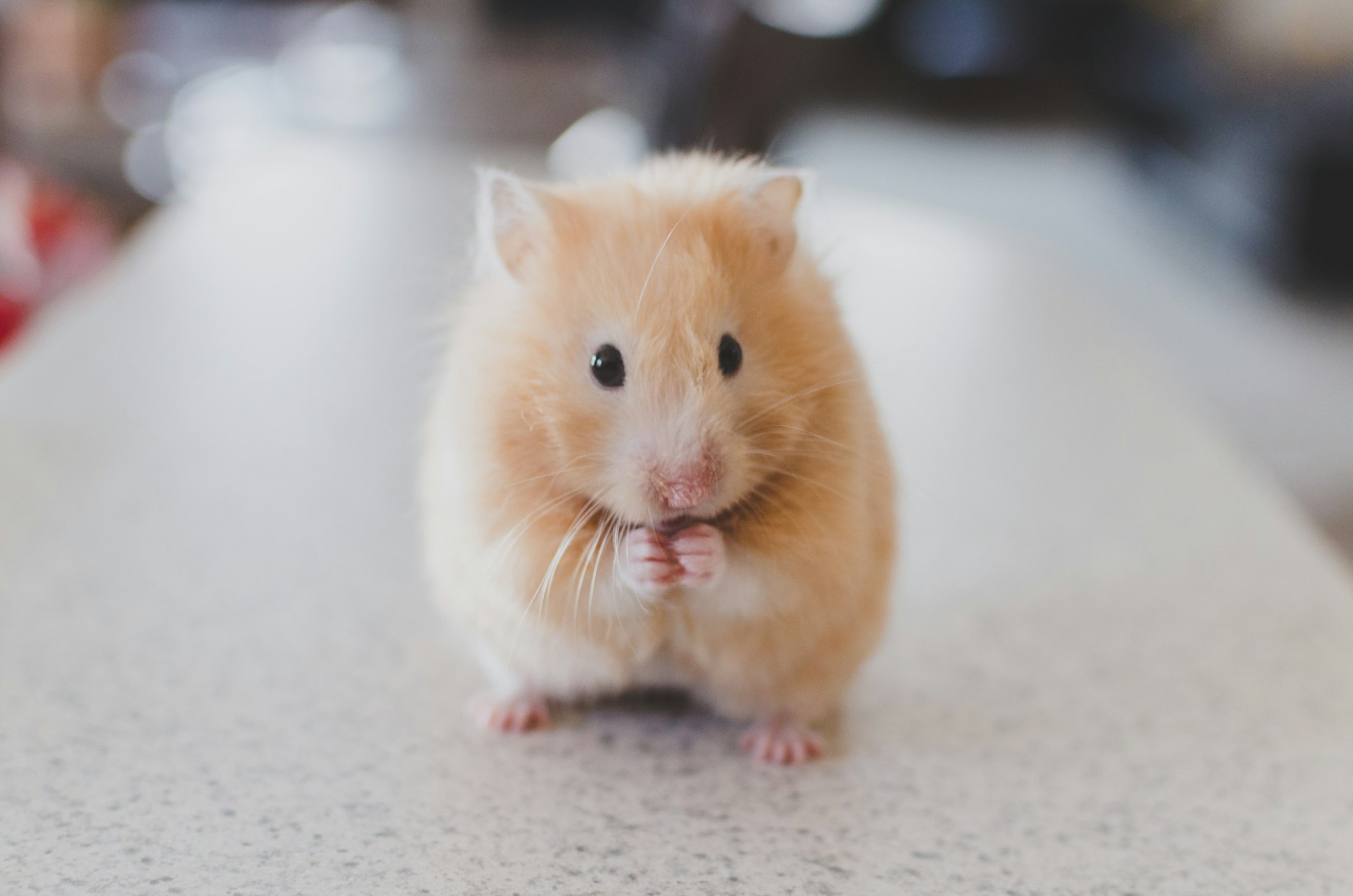
Researchers use multiple types of mice in their research, all with unique behavioural traits (a nice parallel for personality, a term generally reserved for humans).
Much like different dog breeds have unique behavioural characteristics, mice breeds have distinct characteristics too.
For example, Balb/c mice are naturally timid and anxious- introverts by all accounts. When placed in a new cage or alongside a dominant mouse, they keep to themselves and avoid venturing too far.
NIH Swiss mice are the polar opposite; bold, curious and exploratory, these are the daredevils of the rodent world. But as it turns out, their behavioural traits are far from static.
Faecal Microbiota Transplant (FMT) involves transferring faecal bacteria from a healthy donor to a sick recipient. The practice boasts impressive treatment rates for clostridium difficile, an antibiotic-resistant pathogen that causes chronic diarrhoea.
When Balb/c mice are given a faecal transplant with bacteria from NIH Swiss mice, they adopt the behaviours characteristic of their donor (and vice versa); from wallflower to social butterfly, all thanks to a poo transplant. Sometimes, the truth is stranger than fiction.
To measure these changes, researchers place Balb/c and NIH Swiss mice on a high platform after transplantation and observe their behaviour.
Before Faecal Microbiome Transplant (FMT), one study reported that the Balb/c mice took up to 5 minutes to dismount, whilst the NIH Swiss mice jumped off in seconds.
In a similar study, mice transplanted with poo samples from depressed humans were observed to develop depressive symptoms. Collectively, these studies suggest that microbes play a causative role in influencing behaviour/mood.
Of mice and men
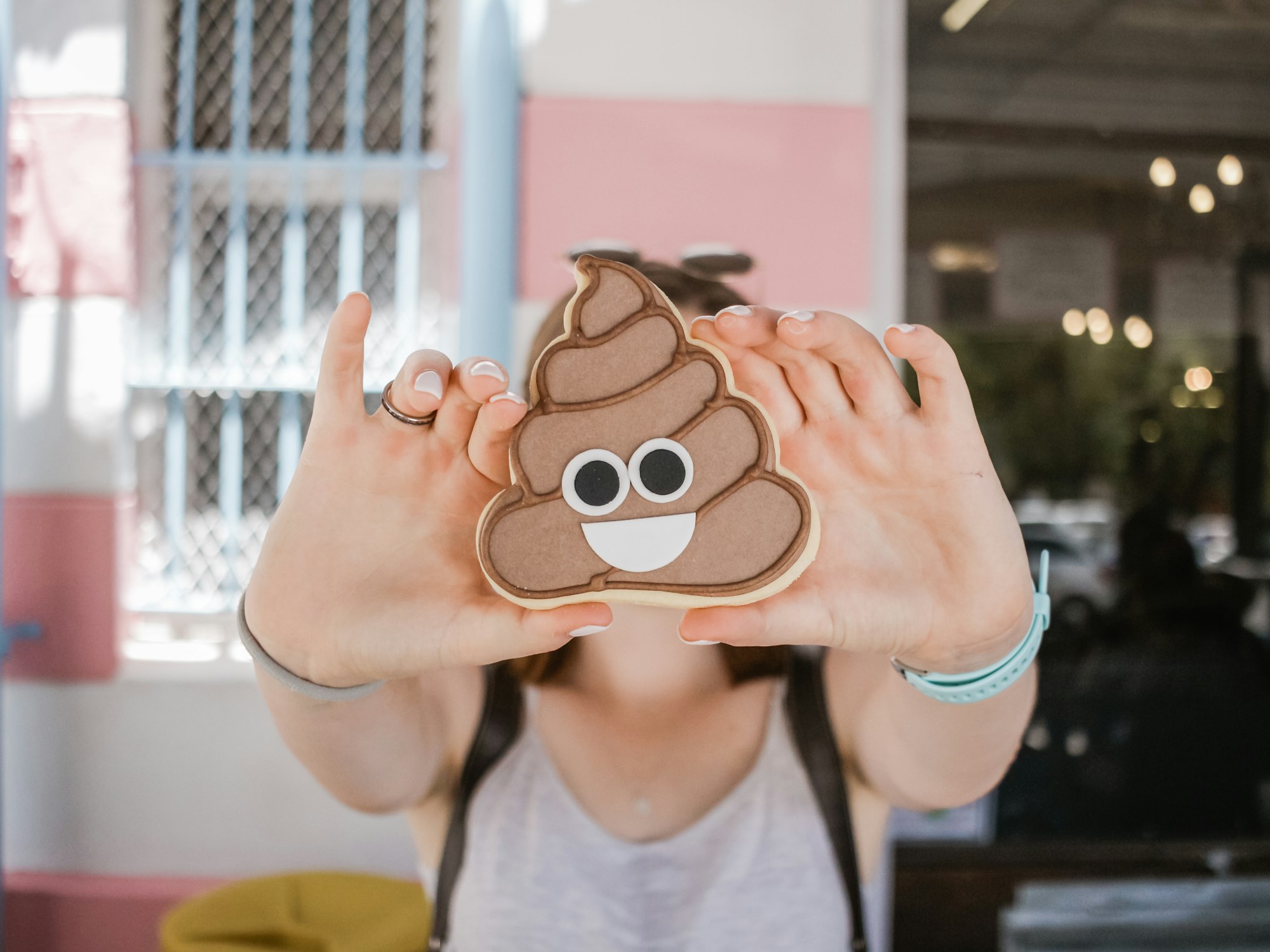
Before you blame your microbiome for your character defects, it's important to note that mice studies cannot simply be applied to humans.
Ethical concerns prohibit a similar study from being performed on human subjects, although there are some anecdotal reports of people experiencing depressive episodes after receiving FMT for gastrointestinal infections.
Moreover, whilst the research available is limited and poorly designed, a systematic review of 21 studies, both clinical and pre-clinical, concluded:
"There appears to be strong evidence for the treatment and transmission of psychiatric illnesses through FMT...While the research in this field is far from complete, the potential of targeting the gut-brain axis using FMT to alleviate symptoms of psychiatric illness is promising. "
Eight of these studies involved human donors and subjects, including a study at Arizona State University that transplanted 18 autistic children with microbes from non-autistic donors.
Soon after receiving an FMT, the subjects experienced marked improvements in GI symptoms (bloating, cramping, constipation etc.) and autism-related behaviours (difficiulty socialising), with benefits lasting up to 2 years later.
Whilst this could suggest a causal relationship between autism and the microbiome, it may also indicate that FMT indirectly improved symptoms by alleviating gastrointestinal upset.
Feeling like a hot air balloon or suffering abdominal cramps is hardly a recipe for feeling sociable!
On this point, the majority of studies included in the systematic review looked at people with co-morbid Irritable Bowel Syndrome, meaning it's possible that improvements in their psychiatric symptoms resulted from reduced digestive issues.
Whilst the mechanism remains unclear, numerous plausible pathways are proposed. For example, the microbiome is known to manufacture multiple mood-altering neurotransmitters, including dopamine, Gamma-aminobutyric acid (GABA) and up to 90% of the body's happiness hormone, serotonin.
These metabolites are suspected to influence the brain via the vagus nerve, a communication highway linking the gut and brain; in mice studies, cutting the vagus nerve can reverse behavioural changes triggered by FMT.
Mo’ friends, mo’ microbes

A study in 2015 at Ohio State University found that toddlers with a higher microbiome diversity were likelier to exhibit behavioural traits such as curiosity, sociability and impulsivity.
In boys alone, extroverted personality traits were associated with the abundance of bacteria from the Rikenellaceae and Ruminococcaceae genera.
Ruminococcaceae is one of the main butyrate-producing bacterial groups, an anti-inflammatory short chain fatty acid that nourishes the gut lining.
Associations between temperament and microbiome composition were less evident in girls, although an abundance of Rikenellaceae appeared to influence fear-proneness.
Whilst interesting, the paper merely found an association, meaning it remains unclear whether the microbiome influences personality directly.
It might be that more sociable toddlers pick up a broader sample of microbes, which would make sense. A study published in Nature found that daycare attendance can boost microbiome diversity, supporting this idea.
In 2020, a paper from Oxford University uncovered more links between the microbiome and personality. In short, most of the research exploring microbiome composition and behaviour is in animal models, with the few human studies available looking at those with psychiatric conditions like autism.
Dr Johnson hypothesised that the species associated with autism and depression would also influence personality traits in the general population.
Participants completed study questionnaires assessing their behaviour, diet, health, lifestyle and sociodemographics, allowing Johnson to control for confounding variables.
Johnson found that the diversity of people's microbiomes- and the amount of certain species present- were linked with personality traits, including sociability and depressiveness (neuroticism).
Most excitingly, certain species of bacteria previously associated with autism were also linked to differences in sociability among neurotypical people, including:
- Akkermansia
- Lactococcus
- Oscillospira
Depletion of these species has been reported in autism (characterised by difficulty socialising), so the fact Johnson found that higher levels correspond to sociability hints at a link.
There were some outliers, however. For example, Johnson found that a reduced abundance of Streptococcus predicted fewer depressive tendencies, whilst another study reported the opposite.
Likewise, Johnson established a link between reduced Sutterella levels and sociability, with lower levels predicting increased sociability. Based on this, you would expect autistic individuals to show enrichment in the bacteria, but at least one study reported the exact opposite.
Johnson also found that lower microbiome diversity predicted more significant anxiety and stress levels. As we have written about before, the gut and brain are intimately linked, meaning a troubled mind can lead to a troubled gut and vice versa.
When interpreting these results, it's important to remember that our body's stress response can alter the microbiome..
Another study finding was that those with larger social circles exhibited greater microbiome diversity, which is linked to improved health outcomes and disease protection.
It's important to note that correlation does not equal causation, and the study cannot tell us whether sociability increases microbiome diversity or vice versa.
For example, social exposure increases diversity in primates, which may also be true in humans; the more people you socialise with, the more microbes you will be exposed to.
Interestingly, probiotics in supplement form were strongly associated with low diversity. However, this might reflect that those with low diversity are most likely to need probiotics in the first place (nicotine patches are strongly associated with smoking but are not the cause).
☝MICROBIOME FACT☝ The Anna Karenina Principle refers to a quote from Leo Tolstoy's novel of the same name: "Happy families are all alike; every unhappy family is unhappy in its own way." In Microbiome research, it predicts that "healthy" microbiomes are alike (diversity and balance), whereas each disease-associated microbiome is "sick" in its own way.
Final thoughts
A confluence of genetic and environmental factors shapes our beliefs, temperament and behaviour, collectively referred to as our personality.
Personality shapes our world, influencing our general health, the friendships we cultivate and the careers we pursue, with emerging evidence suggesting the microbiome may play a role.
Animal studies strongly suggest a microbial component to traits such as cautiousness, sociability and anxiousness.
Whilst the evidence in humans is less conclusive; it's interesting to note that behavioural conditions such as autism are associated with depletion/abundance of certain species and dysbiosis.
Although the study didn't prove causation or explore mechanisms, it suggests gut microbes may influence behavioural traits such as extroversion.
With that said, the research is far from conclusive; for example, whilst one study found that lower levels of Suttarella predicted increased sociability, another study found that lower levels of this species predicted introversion.
Whether the microbiome directly influences human behavioural traits is yet to be proven. So far, the evidence supports a link between the microbiome and behavioural traits, although pending further studies, it's unclear how this works or in which direction (it could be both ways).
Article summary
- Animal studies strongly suggest a causal relationship between gut microbiome composition and behavioural characteristics. For example, timid mice can be made to behave more boldly and vice versa by transplanting them with each other's microbiomes
- Ethical concerns preclude researchers from recreating these studies in human subjects, although mice transplanted with faecal samples from manic depressive humans have been observed to exhibit depressive behaviours.
- Psychiatric conditions, including anxiety disorders and schizophrenia, are often accompanied by reduced microbiome diversity. Likewise, certain species have been associated with conditions such as autism and depression, although it remains unclear what a "healthy" microbiome looks like
- A systematic review of Faecal Microbiota Transplant (FMT) for Psychiatric conditions found strong evidence for its efficacy, although the studies were small-scale and poorly designed
- At least one study has reported improvements in autism symptoms after FMT, although it is disputed whether the microbiome directly causes behavioural changes in autistic individuals
- A small study at Arizona State University reported that the more diverse a toddler's microbiome, the more curious and sociable they appear.
- A large-scale 2020 study at the University Of Oxford reinforced these findings, noting that increased microbiome diversity is associated with sociability, although it remains unclear whether the relationship is causal
- The study also found that bacterial species previously associated with autism were correlated with personality traits like sociability and neuroticism, although there were outliers.

☝️DISCLAIMER☝This article is for informational purposes only. It is not intended to constitute or be a substitute for professional medical advice, diagnosis, or treatment.

